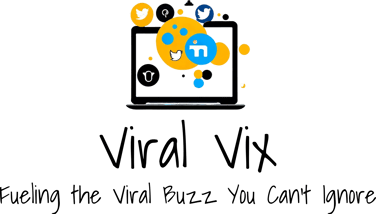Personalized Nutrition: The Future of Healthy Eating – Emerging Trends in Health Tech
In today’s fast-paced world, one-size-fits-all approaches to healthy eating are becoming obsolete. Enter personalized nutrition—a tailored approach to diet and wellness that leverages health data, technology, and scientific insights to meet individual needs. With advancements in health tech, personalized nutrition is shaping the future of how we eat and live healthier lives.
HEALTH & WELLNESS
Yogi B
1/9/20252 min read


What Is Personalized Nutrition?
Personalized nutrition focuses on creating a diet plan based on an individual’s unique characteristics, including:
Genetics: Understanding how your genes influence nutrient metabolism and dietary needs.
Gut Microbiome: Analyzing gut bacteria to determine how your body processes food.
Lifestyle Factors: Considering activity levels, sleep patterns, and stress management.
Health Goals: Aligning nutrition strategies with specific objectives like weight loss, improved energy, or managing chronic conditions.
This approach moves beyond generic dietary guidelines to deliver customized solutions that align with your body’s specific requirements.
Emerging Trends in Health Tech Driving Personalized Nutrition
DNA Testing for Nutrition:
Genetic testing kits like 23andMe and MyDNA analyze your DNA to provide insights into how your body responds to various nutrients and foods.
Results can highlight potential deficiencies or sensitivities, such as lactose intolerance or gluten sensitivity.
Wearable Devices and Apps:
Smart devices like fitness trackers and continuous glucose monitors (CGMs) offer real-time data on activity, heart rate, and blood sugar levels.
Nutrition apps use this data to suggest meal plans or provide feedback on eating habits.
Gut Microbiome Analysis:
Companies like Viome analyze gut bacteria to recommend foods that promote a healthy microbiome, which is crucial for digestion, immunity, and mental health.
AI-Powered Diet Recommendations:
Artificial intelligence is being used to process large datasets, including genetic, microbiome, and lifestyle information, to generate hyper-personalized diet plans.
AI also predicts how specific foods may impact your body, helping you make informed choices.
Integration of Biometrics:
Advanced health platforms integrate biometric data—such as blood markers for cholesterol or inflammation—to fine-tune dietary recommendations.
Virtual Nutrition Coaching:
Online platforms and AI-driven chatbots provide personalized coaching, making expert advice more accessible.
Benefits of Personalized Nutrition
Improved Health Outcomes: By addressing specific nutritional needs, personalized plans can help manage or prevent chronic conditions like diabetes, hypertension, and obesity.
Enhanced Energy Levels: Tailored diets optimize nutrient intake, improving overall energy and productivity.
Sustainable Eating Habits: Personalized recommendations consider preferences and lifestyle, making it easier to stick to healthy eating habits.
Precision Weight Management: Customized plans align with your body’s metabolic profile, offering more effective weight management solutions.
Challenges to Adoption
While the potential of personalized nutrition is vast, some challenges remain:
Cost: DNA tests, gut microbiome analysis, and advanced wearables can be expensive, limiting accessibility.
Data Privacy: Sharing sensitive health information raises concerns about data security.
Scientific Validation: Although promising, more research is needed to validate some personalized nutrition methodologies.
The Future of Personalized Nutrition
The future of healthy eating lies in continuous advancements in health tech. Here are some exciting possibilities:
Integration with Healthcare: Personalized nutrition could become a standard component of preventive care, prescribed by doctors based on comprehensive health assessments.
Real-Time Adjustments: Wearables and AI could enable real-time dietary adjustments based on changing health metrics.
Global Accessibility: As technology becomes more affordable, personalized nutrition could reach wider demographics, bridging the gap in health equity.
Sustainability Focus: Future systems may integrate environmental considerations, recommending diets that are not only healthy but also eco-friendly.
Conclusion
Personalized nutrition represents a paradigm shift in how we approach healthy eating. By leveraging emerging health technologies, individuals can unlock a deeper understanding of their bodies and create sustainable, optimized diets. While challenges remain, the potential for improved health outcomes and enhanced quality of life makes personalized nutrition a key player in the future of wellness.
As science and technology continue to evolve, so too will our ability to eat smarter, live healthier, and achieve our full potential.
